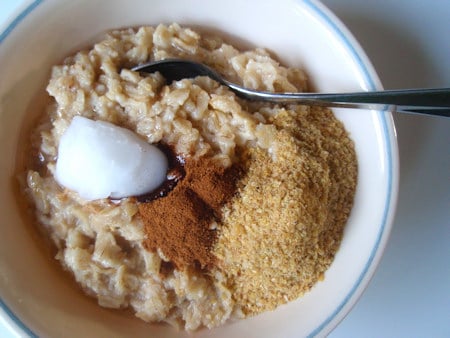Do you need to cut out sugar?
Sugar, sugar, sugar. Everyone is talking about sugar these days, like a single grain hidden under the carpet will make you drop dead in plain sight. Let's sum up some research that makes for this widespread obsession with the white villain. Just one to two servings of sugary beverages per day may raise your risk of heart disease by 35 percent, diabetes by 25 percent, and stroke by 15 percent. Cutting added sugars can improve health in as little as 10 days, reducing triglycerides by 33 points, and lowering blood sugar by 53 percent.
This all seems like the perfect case to drop that sugar like it's hot.
Unless you are inhaling sugar like it's coke, the comparison is a bit off with hardcore drug addiction. Yet it is imperative to understand that sugar can indeed be a gateway drug into relapse if you are not mindful of your eating habits. Some basic blood sugar balancing strategies are key to recovery, because blood sugar will trigger cravings big time. Did you know just adding some cinnamon can prevent any blood sugar spikes, if taken w whatever sugary meal you are having?
I don't recommend that - especially not if you weaning off another primary addiction. Your biochemistry doesn't like huge changes - it needs time to adapt to change. Although we like to do these things all or nothing - this does not serve us.
Sugar CAN be a gateway drug into relapse - whether it is food or drug addiction. This is because it taps on the same reward ways and we remember the high of our primary addiction instead of letting those pathways overgrow and close the door to our addiction.
However, fact is that it just doesn't work to remove more than one thing at a time, and doing that gradually in addiction recovery.
When we do not do it gradually, our biochemistry simply backlashes. We get bad withdrawals symptoms, poor blood-sugar, hunger hormones go red flag and we relapse - sooner or later. Our body does not respond will to drastic changes regardless of them being in the name of health. Health is balance.
Health is honoring where you are at today and matching that with your next step.
Even if that is not what we might imaging to look perfect on paper - that's not the point. Your next smallest step, is the perfect step for you.
Unhealthy is overriding body intuition - doing what someone else does because it works for them. You are you, and the lesson with every addiction is to respect your needs and journey in life that is unique for every one of us.
Sugar is not itself a big deal in moderation.
It all depends on dosage and also what you take it with - I recommend taken with some fats to avoid sudden blood sugar spikes. It will affect us poorly if we add it to sugary beverages, because it enters our blood stream rapidly without any brakes in the form of fat, fiber or protein. So avoiding it in beverage form is a smart approach. Sprinkling some on top of your oatmeal or using it in a tomato sauce never made anyone an addict, and it helps a bit to curb the sweet tooth that addicts struggle with especially in the early phases of recovery.
Oats is a carb and adding just sugar to that makes for a blood sugar spike and little hunger control later. You want to always add some fats with your meals to balance out the blood sugar level - nothing wrong w carbs not adding a dash of sugar, just make sure you are eating balanced and NOT lowfat. Lowfat spells disaster in recovery.
The take-away here is to balance it - dosage and combination wise, rather than to cold turkey eliminate sugar and inevitably watch your mood and withdrawal symptoms intensify.
Anything that is too drastic is not in alignment with a recovery from an already extremist pattern of previous addiction.
Addiction is a tool to teach us the gray shades of life, the journey, being present, pain-tolerance rather than suppression, and becoming kinder to ourselves and others.
An extreme, fanatical approach is never kind. Small steps.
Reference:
J Nutr. 2015 Oct;145(10):2389-95 J Am Coll Cardiol. 2015:66(14):1615-1624

